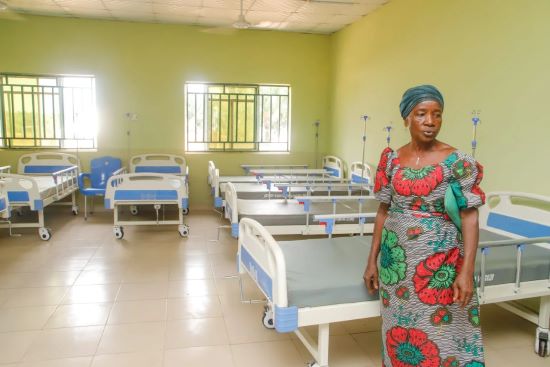Policy-making leaders and stakeholders in the health sector from Nigeria and other countries of the Global South gathered at the 2024 Doha Forum to discuss strategies for preventing healthcare challenges and optimizing resource allocation.
The discussions focused on the importance of prioritizing primary healthcare, improving access to medicines, and promoting the local manufacturing of pharmaceuticals to boost healthcare systems, particularly in the Global South.
Held under the theme “The Innovation Imperative,” the two-day global event, which concluded yesterday, brought together influential policymakers and experts from across the globe to explore innovative solutions to global health issues.
The forum also emphasized the need to accelerate efforts toward achieving Sustainable Development Goal 3 (SDG 3) – ensuring good health and well-being for all.
During the event, Nigeria’s Coordinating Minister for Health and Social Welfare, Prof. Muhammadu Ali Pate, took part in a pivotal panel discussion titled “From Challenges to Change: Enhancing Global South Health through Collaboration.”
In his address, Prof. Pate highlighted Nigeria’s ongoing efforts to improve its healthcare system, and the critical role collaboration plays in addressing health disparities across the Global South.
Prof. Pate stressed the significance of resource allocation in health sectors, especially in developing countries, and urged governments to enhance investment in primary healthcare.
He also advocated for the expansion of local pharmaceutical manufacturing to reduce reliance on imported medicines, which can be expensive and often inaccessible to the populations that need them most.
“If we are to make substantial progress in achieving SDG 3, we must focus on building strong, resilient healthcare systems in the Global South, supported by innovation and collaboration,” Prof. Pate remarked.
The Doha Forum, which has been convening since 2003, serves as a platform for high-level dialogue on a wide range of global challenges, from health and development to security and climate change.
This year’s discussions underscored the importance of forging new partnerships to confront health-related issues that impact millions in developing nations.
The closing of the event was marked by a renewed commitment among participants to continue the work of enhancing healthcare access and equity, with a particular focus on the Global South.


